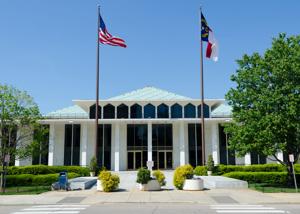North Carolina General Assembly makes third attempt to curtail governor’s power

(The Center Square) – The North Carolina General Assembly again has approved a bill that would reduce the governor’s power to shut down the economy during an emergency.
The House approved an amended version of House Bill 264 on Wednesday, 65-45. It would require the governor to seek the concurrence of a panel of state officials when issuing a statewide declaration of emergency for 67 or more North Carolina counties.
It is the third attempt by the Legislature to limit the governor’s emergency declaration powers. Gov. Roy Cooper vetoed a similar bill in July 2020. The Senate also approved a duplicate bill in April, but it never crossed over to the House.
“The Legislature must address the endless duration of power that has been granted to the governor during a self-declared and boundless state of emergency,” Rep. Keith Kidwell, R-Beaufort, said. “Simply put, there is no unilateral rule in a constitutional republic. This legislation reinstates much needed checks and balances over the governor’s unlimited emergency powers.”
North Carolina is one of 15 states with no time limit on a governor’s state of emergency declaration, according to the Maine Policy Institute. The North Carolina Legislature and the governor have the power to declare an emergency, Maine Policy Institute’s Emergency Powers Scorecard shows, and the declaration can be terminated only by the authority who made it.
Cooper, a Democrat, has faced pressure from Republican lawmakers to end the state’s emergency declaration. He also has faced legal challenges over the restrictions within the emergency orders.
Churches and businesses have filed lawsuits aimed at rolling back the restrictions. Cooper’s Republican opponent in last November’s gubernatorial election, former Lt. Gov. Dan Forest, unsuccessfully sued the governor last year for issuing public health orders without concurrence from the Council of State.
The initial push for the change came after Republicans said Cooper sought approval from the Council of State in March 2020 for his first COVID-19 order, which closed businesses throughout the state, but later “switched legal theories” when some members raised questions.
If HB 264 becomes law, the governor would have to seek the Council of State’s approval within seven days of issuing an emergency order. The order would remain active for up to 45 days.
The governor is part of the Council of State, along with the lieutenant governor, secretary of state, attorney general, state treasurer, state auditor, commissioner of labor, commissioner of agriculture, insurance commissioner and superintendent of public instruction.
A majority vote by both the House and the Senate would be required for a declaration for more than 45 days under the bill. If the General Assembly rejects the extension, the governor would be blocked from issuing a similar declaration for the same emergency.
The House version of the bill, approved in late March, allowed the state health director to issue quarantine and isolation orders for certain groups of people or animals for up to seven days. The Senate removed animals from the directive on Sept. 8 before approving the bill, 27-15, without debate. Every Democrat who was present voted against the measure.
The measure now heads to Cooper.
Disclaimer: This content is distributed by The Center Square

